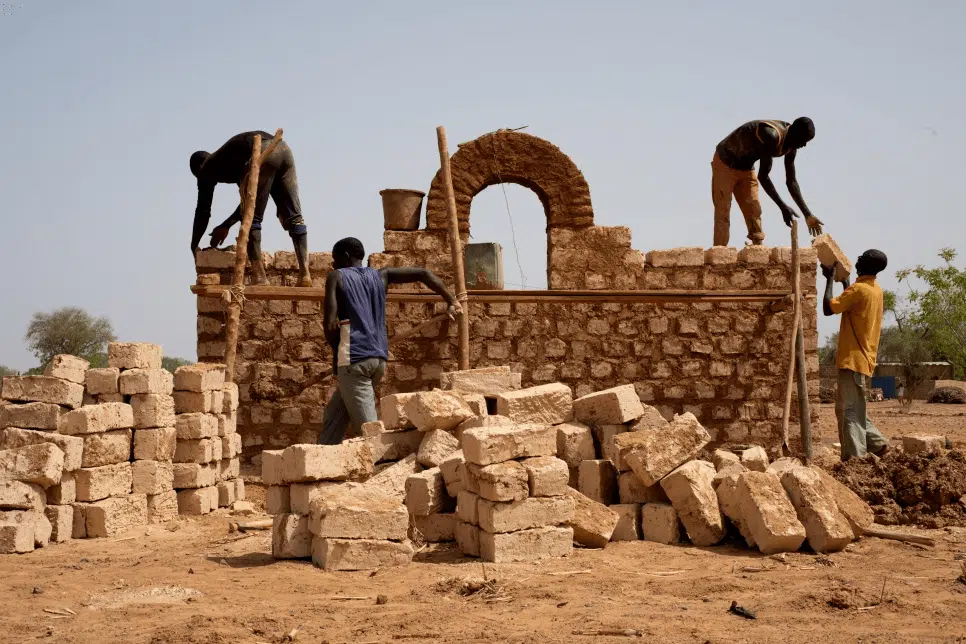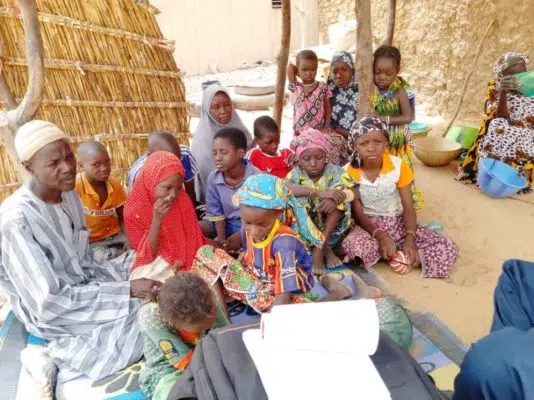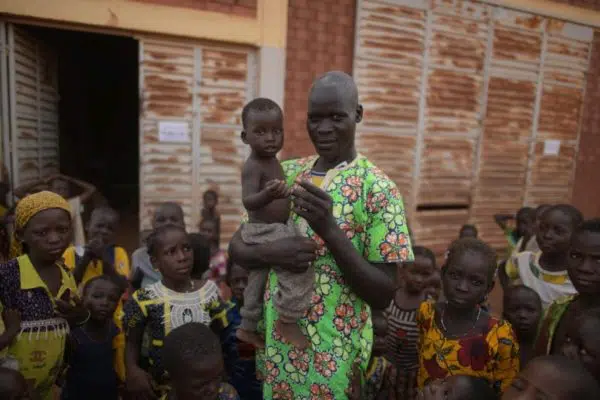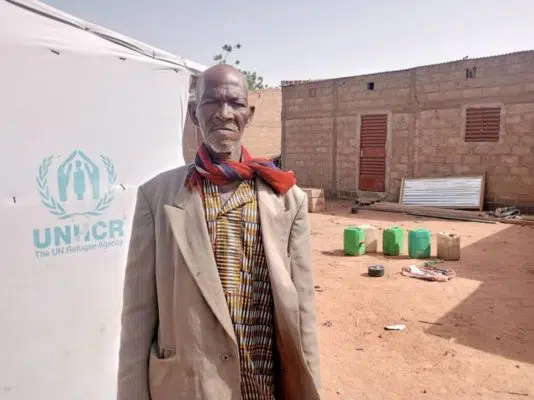
Internally displaced Burkinabè are trained by local masons to build climate-friendly homes using local materials in Kaya, Burkina Faso. © UNHCR/Anne Mimault
This is a summary of what was said by UNHCR Representative in Burkina Faso, Abdouraouf Gnon-Konde – to whom quoted text may be attributed – at today’s press briefing at the Palais des Nations in Geneva.
UNHCR, the UN Refugee Agency, is warning of escalating humanitarian needs for displaced people in Burkina Faso leading to an increase in refugees fleeing the country. As violence against civilians and intercommunity conflicts continue, close to 50,000 refugees have fled to Niger, Mali, and further south to the coastal states of Benin, Côte d’Ivoire, Togo and Ghana to seek safety in the last two years.
With a total of 1.76 million registered internally displaced people, Burkina Faso is experiencing one of the fastest-growing displacement crises in the world, marked by violence, poverty, food shortages and the growing impact of the climate crisis.
For several years, Burkinabés originally from northern and eastern regions have been fleeing violence and terrorist attacks to reach safer areas in and around the country’s main cities. But with insecurity now spreading throughout the country, urban areas are becoming overwhelmed by new arrivals. Host communities and the displaced are competing for natural resources, basic services and economic opportunities. As intercommunity tensions become more acute, many displaced people are deciding to move again, looking for safety, better services and livelihood opportunities.
Since the beginning of the year, UNHCR and its partners have identified an increasing number of internally displaced people deciding to cross borders, in particular moving southwards toward coastal countries such as Ivory Coast, Ghana, Togo, and Benin. More than 23,000 internally displaced Burkinabés have crossed borders in 2022.
To respond to the new displacement, UNHCR is working closely with local authorities and partners to provide shelter and life-saving assistance to the most vulnerable, such as children and survivors of gender-based violence. However, more resources are needed to prevent internally displaced Burkinabés from becoming refugees and to find durable solutions for them. Newly-arrived Burkinabé refugees – mostly women and children – currently have limited access to food, shelter, hygiene and sanitation.
This plight of the displaced is being made worse by severe underfunding. UNHCR is calling on the international community to provide greater solidarity and support for the displaced in Burkina Faso and their hosts through urgent financial assistance. Despite the growing needs in Burkina Faso and neighboring countries, just 52 per cent of the US$336.9 million required by UNHCR this year has been funded.
ENDS
For more information on this topic, please contact:
- In Ouagadougou, Valeria Dell’Aquila, dellaqui@unhcr.org, +226 525 67 57
- In Dakar (regional), Alpha Seydi Ba, baalp@unhcr.org, +221 773 457 454
- In Geneva, Eujin Byun, byun@unhcr.org, +41 79 747 87 19
- In New York, Kathryn Mahoney, mahoney@unhcr.org, +1 347 574 6552
- In Ottawa, Levon Sevunts, sevunts@unhcr.org, +1 613-286-6975





